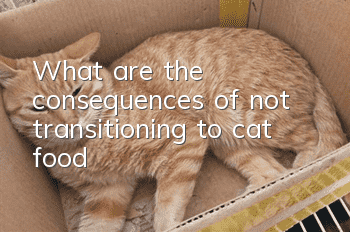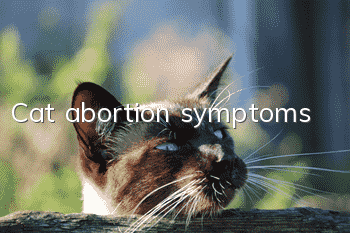What are the consequences of not transitioning to cat food?

Cats’ intestines are very fragile, and changing food directly may cause intestinal diarrhea and vomiting. In severe cases, it may lead to other life-threatening diseases.
Cats have very short intestinal tracts and are typical carnivores. Generally, cats will form specific bacterial colonies in the intestines and stomach when eating a certain type of food, thereby achieving reasonable digestion. If a cat suddenly changes to a different type of food and does not eat it, During the transition, the gastrointestinal tract may cause the previously formed bacterial colonies to be unable to digest the food being eaten at this time due to different foods, resulting in gastrointestinal dysfunction, vomiting, diarrhea, and in severe cases, other secondary diseases. Therefore, cats should generally change their food. Slowly change the food according to the 7-day food change method to allow the cat's gastrointestinal tract to slowly adapt to the new food! Parents who suddenly change food due to carelessness or ignorance and develop gastrointestinal symptoms should not be too panicked. Cats that are still in good mental condition can be fed some probiotics to adjust, and then slowly change their food. For cats that are not in a good mental state, it is recommended to go to the hospital for a check-up to see if the cat has other symptoms besides the gastrointestinal tract. !Finally, I wish all the cats a smooth food change and good luck with their food!
- Why do cats only meow at people but rarely at other cats of the same species?
- What will happen if a cat eats raw eggs?
- Which houseplants and flowers are toxic to cats?
- Can I keep a cat while pregnant?
- What is the normal weight of a cat?
- What is the general price of a blue cat with folded ears? Price of a blue cat with folded ears!
- How to train a cat to poop on the toilet
- At what age can a cat brush its teeth?
- Why do cats sometimes have yellow discharge from their ears?
- How are fold-eared cats bred? Once you know it, you will realize how cruel humans are!



